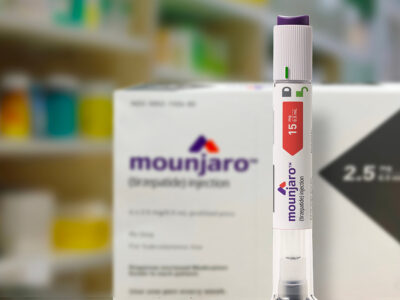
Given that one-in-five patients in the UAE is diagnosed with type two diabetes, it is clear that the chronic disease is a rampant challenge in the region – and one that can be blamed on the ‘failure of the healthcare system’, according to Ali Hashemi (above), co-founder and chairman of GluCare.
The healthcare system is generally not designed to handle long-lasting illnesses that need consistent monitoring and follow-up versus direct intervention or treatment, explained Hashemi.
“Despite decades of advancement in technology, drugs and in financing and insurance structures, humans are still getting fatter and more diabetic, everywhere on earth,” said Hashemi.
“I blame the healthcare system primarily for the failure of management of this disease. This is also the same reason why a woman with a breast cancer diagnosis is more likely to survive than a diabetic one: the healthcare system is designed to be symptomatic and episodic, to intervene when there’s a problem and to just cut it out, like a surgery. The current healthcare system is not designed to effectively manage chronic disease,” he explained.
It is with this thinking in mind that Hashemi and his partners first came up with GluCare, a Dubai-based healthtech company and the world’s first diabetes clinic to empower patients through remote continuous data monitoring.
Anatomy of a visit to GluCare
GluCare was born out of the idea that a combination of a human-centric patient approach and constant monitoring through technology will lead to a better and more efficient management of diabetes and related illnesses that fall under the umbrella of Metabolic Syndrome, a cluster of conditions that occur together, increasing the risk of heart disease, stroke and type two diabetes.
“GluCare is a diabetes platform backed by what is the most advanced tech on earth. But at the same time we’re a tech company masquerading as a clinic,” said Hashemi.

“We literally built a beautiful 10,000 square foot clinic, just to demonstrate that if you merge human and machine – AI, the data science and tech, with a very human centric model of care – you can change the course of this disease,” he added.
Following a patient’s first visit to GluCare, they are given a wearable device, a connected weight scale, blood pressure cuff and a blood glucose metre and are asked to take photos of their meals on a daily basis.
Algorithms generated from these data inputs not only enable physicians to develop a view on underlying risks for certain long-term chronic diseases, they also alert the clinic on any sudden changes that could signify a patient is moving from a pre-diabetes diagnosis to a full-fledged diabetes one, explained Hashemi.
Human touch to diabetes management
While the tech is a powerful element of GluCare, alone it is not enough. “The tech awards us visibility into the patient’s lives and allows us to use that as a tool to empower engagement,” explained Hashemi.
“But having the best tech on earth isn’t going to win you the race, right? When we think about earning the right to win in diabetes, it’s really about generating the best clinical outcomes at the lowest unit cost and doing it in a transparent and objective and accountable way,” he continued.
Being able to do so is where the human element comes in and here again Hashemi questions the traditional doctor-patient relationship, calling it “imperfect” and advocates for one which involves more patient education and empowerment.

“The set-up of the doctor’s clinic and their general demeanor creates non-verbal obstacles to the human connection between doctor and patient. In our facility, we got rid of all the desks and patients sit in a coffee shop-like setting which feels comfortable,” said Hashemi.
“The patient’s data is projected on a screen and the doctor goes over it with them. Most people don’t have the educational framework to understand the disease process, let alone make the right decisions. It starts with educating the patient and having the time dedicated to do so,” he continued.
Following the same framework which is behind GluCare, Hashemi and the team have already started building out specific programs around cardiovascular disease, bariatric medicine and weight management, all of which are related and fall under the metabolic syndrome.
“We have a number of different KPIs that we measure ourselves against. First, and foremost is, do I improve the underlying clinical condition of the patient and can I improve their diabetes or reverse their pre-diabetes diagnoses?” asked Hashemi.
“Number two, for our insurance company partners and for employers, can I reduce the cost of this patient in the long, medium and short term? In the long term, it’s a no brainer, if I can reverse a pre-diabetic, that patient is going to cost half a million dollars less over their lifetime,” he continued.







